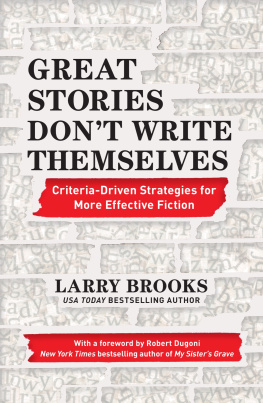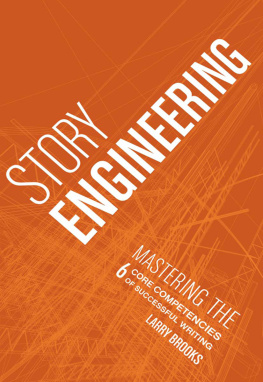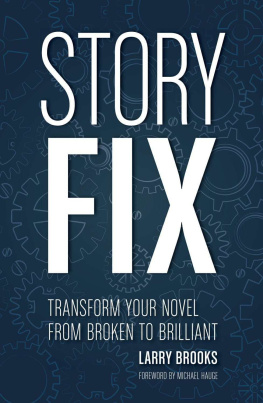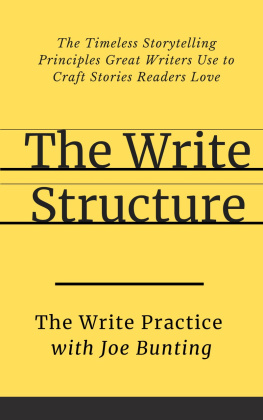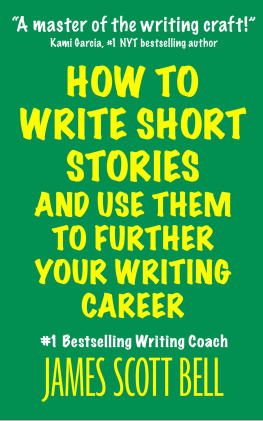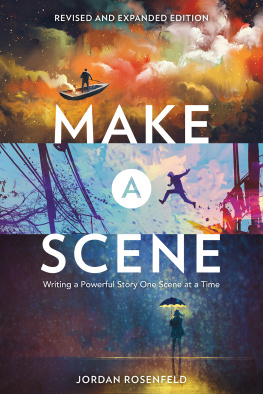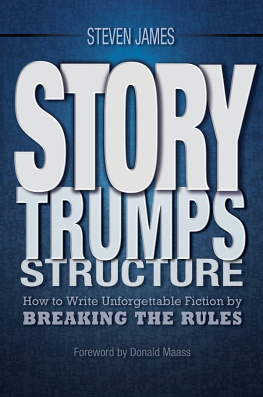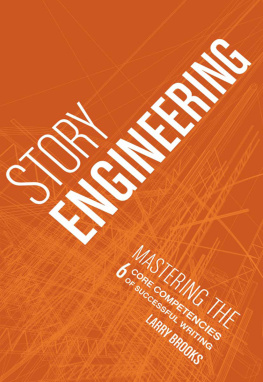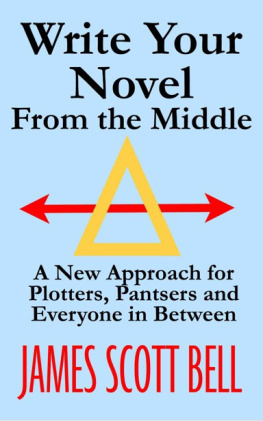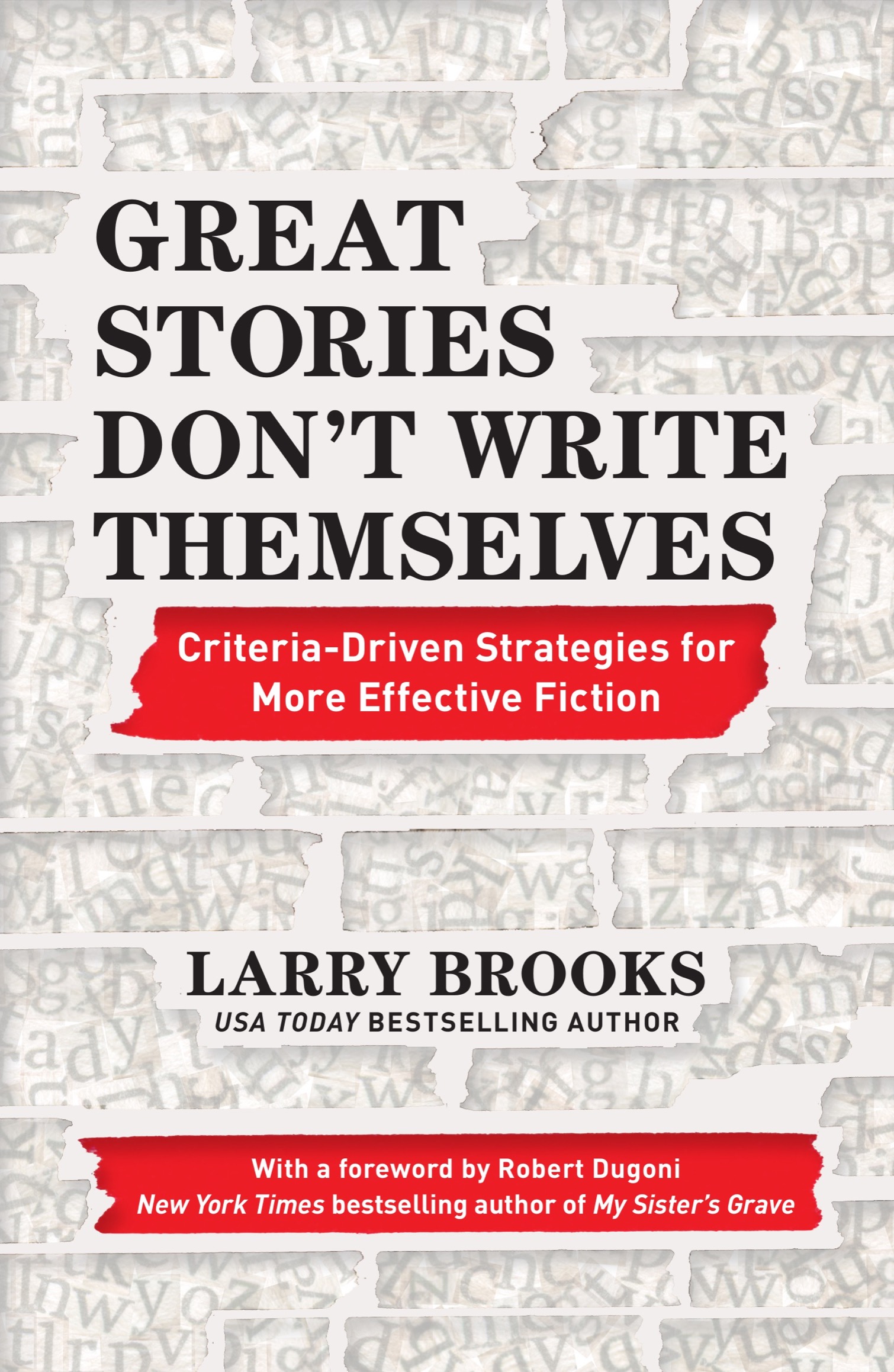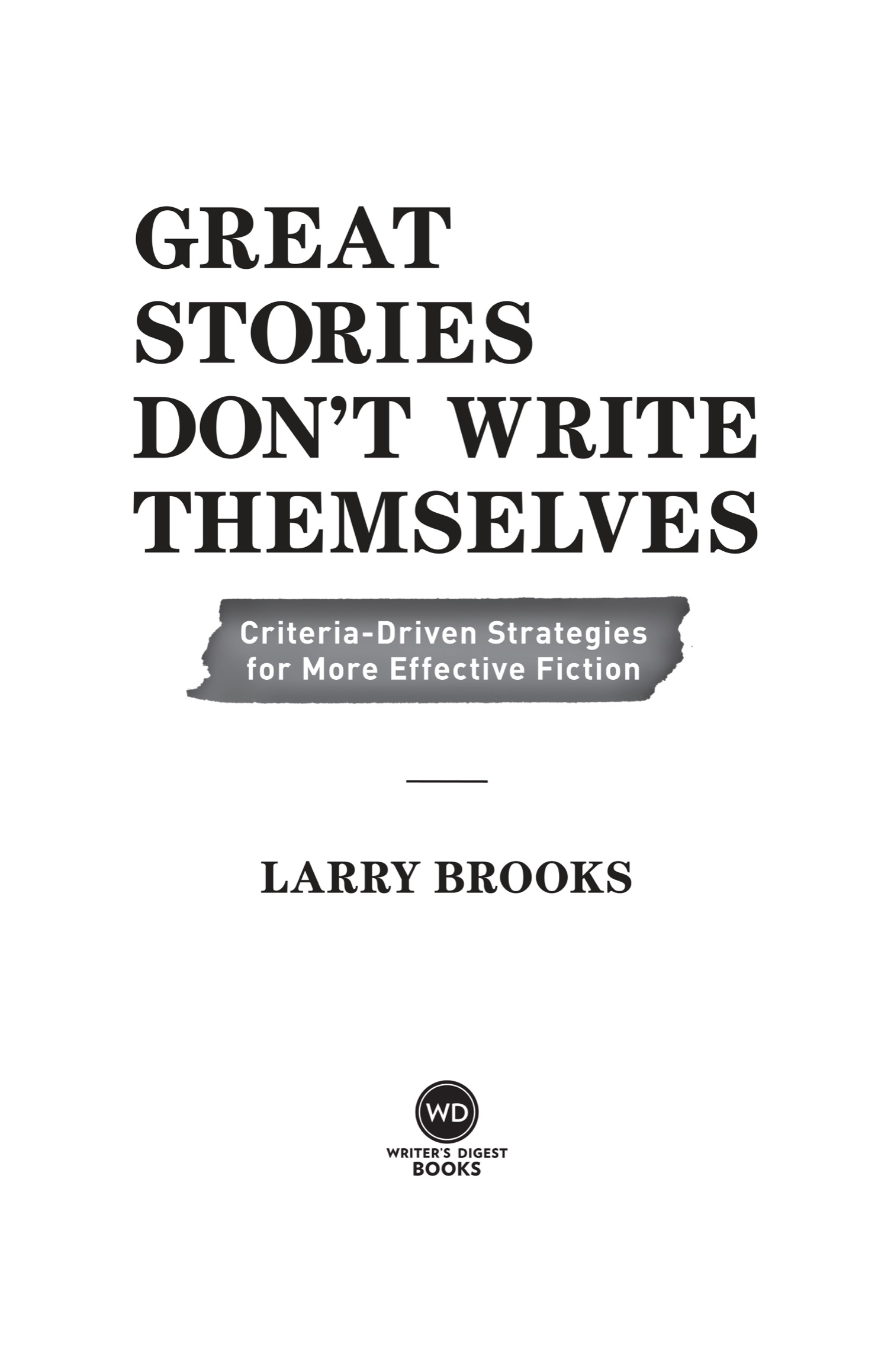Brilliant! Leave it to the king of story engineering to engineer a soup-to-nuts approach to developing and writing great stories. This is a must for every new writers bookshelf!
Jane K. Cleland, two-time Agatha award-winning author of Mastering Suspense, Structure, and Plot and Mastering Plot Twists
Packed with the wisdom of experience, and bursting with excellent criteria on great storytelling, Great Stories Dont Write Themselves teaches writers to craft crowd pleasing page-turners. An important addition to any writers toolkit.
Jordan Rosenfeld, author of How to Write a Page-Turner, Make a Scene, and four other books on the craft of writing
Brimming with all the common sense writers need in order to write uncommon stories.
K.M. Weiland, bestselling author of the acclaimed writing guides Outlining Your Novel, Structuring Your Novel, and Creating Character Arcs
Larry Brooks has done it again!!! In Great Stories Dont Write Themselves, he delivers a clear, concise, easily-digestible roadmap to make our stories work. From the initial story seed to concept to a fully formed premise, he then walks us through each part of a four-part structure, with unwavering clarity. Its the perfect craft book to help aspiring writers turn their writing dreams into reality and an excellent refresher for seasoned novelists.
Sue Coletta, award-winning Indie crime writer of the Mayhem Series and member of the Kill Zone
Larry Brooks has once again managed to boil down all the most important information about craft into a single resource you can read over and over. This book is master-level training in the criteria of a great story. Every writer should add this book to their library.
Jennifer Blanchard, editor, writing coach, and author
Also by Larry Brooks
Story Fix: Transform Your Novel From Broken to Brilliant
Story Physics: Harnessing the Underlying Forces of Storytelling
Story Engineering: Mastering the 6 Core Competencies of Successful Writing
Great Stories Dont Write Themselves. Copyright 2019 by Larry Brooks. Manufactured in the United States of America. All rights reserved. No other part of this book may be reproduced in any form or by any electronic or mechanical means, including information storage and retrieval systems, without permission in writing from the publisher, except by a reviewer, who may quote brief passages in a review. Published by Writers Digest Books, an imprint of Penguin Random House LLC. First edition.
www.penguinrandomhouse.com
ISBN-13: 9781440300851
Ebook ISBN: 9780593188286
Edited by Amy Jones
Designed by Danielle Lowery and Jason D. Williams
Version_1
CONTENTS
Foreword
by Robert Dugoni
Many years ago, when I was a boy, my mother handed me what had been her brothers trumpet. She thought it important that a child learn to play an instrument, something about learning the scales being a good way to expand the mind. I dont disagree. I picked up that trumpet and I did my very best to blast air through the mouthpiece with the hope that the bell would emit a beautiful song. I suspect you know what came next. The sound emitted was so horrific, it summoned my father like a foghorn does a ship. He wasnt as interested as my mother in any of his children playing an instrument. With ten children, I guess he figured there was already enough noise in the house. Take some lessons before you blow into that thing again, he told me. And never again in the house.
I took lessons. I learned to read music and I learned how to summon notes with my fingers pressed down on the pistons, and my lips pinched and squirting air into the mouthpiece. I never did become very good. I didnt like practicing the scales and the runs essential to learning how to truly play a song well. I wanted to just be able to put my lips to the mouthpiece and magically blast out a tune.
Too often, I find, new novelists feel the same.
There is a misconception circumnavigating the writing world that anyone can write because everyone (or nearly everyone) can string words together. String enough words together in the proper order and you have a sentence. String enough sentences together and you have a paragraph. String paragraphs together and you have a scene. String scenes together and voil! You have a story.
So, really, how hard can it be to write a novel?
Just write from the heart! is one rallying cry far too often given to new writers. Pour your heart into it! This advice is akin to my picking up the trumpet, blasting air through the mouthpiece, and believing that a song would magically come out of the bell. I can assure you that was not the case. Oh, you might get lucky and pinch your lips in just the right way, press down the pistons in just the right order, and produce a note. But think of that musical note as a letter. Now carry the analogy one step further. Youd have to get lucky approximately 500,000 additional times, in a row, to produce a novel.
How do you like those odds?
And yet, so many writers do just that. How do I know? Because I was one them, and I soon learned the fallacy of my endeavors. Mind you, I was not a person who had never written when I sat down to type out my Great American Novel. I had been the editor-in-chief of my high school and college newspapers. I wrote for the Los Angeles Times. I wrote news articles and feature stories of significant length. I also practiced law for fourteen years and wrote extensive legal briefs.
I had done just enough to think, How hard can it be to write a novel?
As Larry Brooks might say, I didnt know what I didnt know.
Insert the trumpet analogy from above, here. And that is not even commenting on the quality of the novel written.
It wasnt until I had received close to fifty rejection letters that I fully grasped that writing a novel is a craft. It is something to be studied and learned. For some, this realization is dishearteningas it was disheartening for me when I realized I couldnt blast tunes on my trumpet without first learning the craft. But for others, myself included, the realization is encouraging. If there is a craft, then the craft can be taught, and if it can be taught, then it can be learned, and if it can be learned, then those odds of stringing the right words together to actually produce a coherent novel significantly improve.
Find the right teacher, and the odds improve exponentially. Find the right teacher with the right material and the odds improve even more.
Enter Larry Brooks.
I first met Larry at a writers conference in Surrey, British Columbia, in October 2013, though I had known of him for many years. Larrys work on the craft of writing had become a fixture on my writing shelf alongside the works of Christopher Vogler, Donald Maass, Sol Stein, Michael Hauge, James Frey, and Steven James. I had his books Story Engineering and Story Physics and I soon thereafter bought his brilliant Story Fix. We look for those teachers who can take a complicated mess and, somehow, miraculously unravel it. Larry, unbeknownst to him, had unraveled several of my messes before they ever became published novels, some of them ending up as bestsellers.
After our meeting, I called Larry during one of my hair-pulling moments and asked him for advice on how to fix a tangled mess I had created. Larry listened carefully before asking me a series of questions and prodding around the edges of my story premise. It soon became clear that Larry was not going to fix my problem for me. He was doing much more than that. Larry was teaching me the tools I would need to fix not just one problem but the many others I would face down the writing road. Going back to the trumpet analogy, he wasnt going to teach me to memorize one song. He was going to teach me how to play the instrument so that I could recognize and fix my mistakes on my own. I hung up the phone that day buoyed with a sense I had never had before: I might just make it in this writing gig after all.

